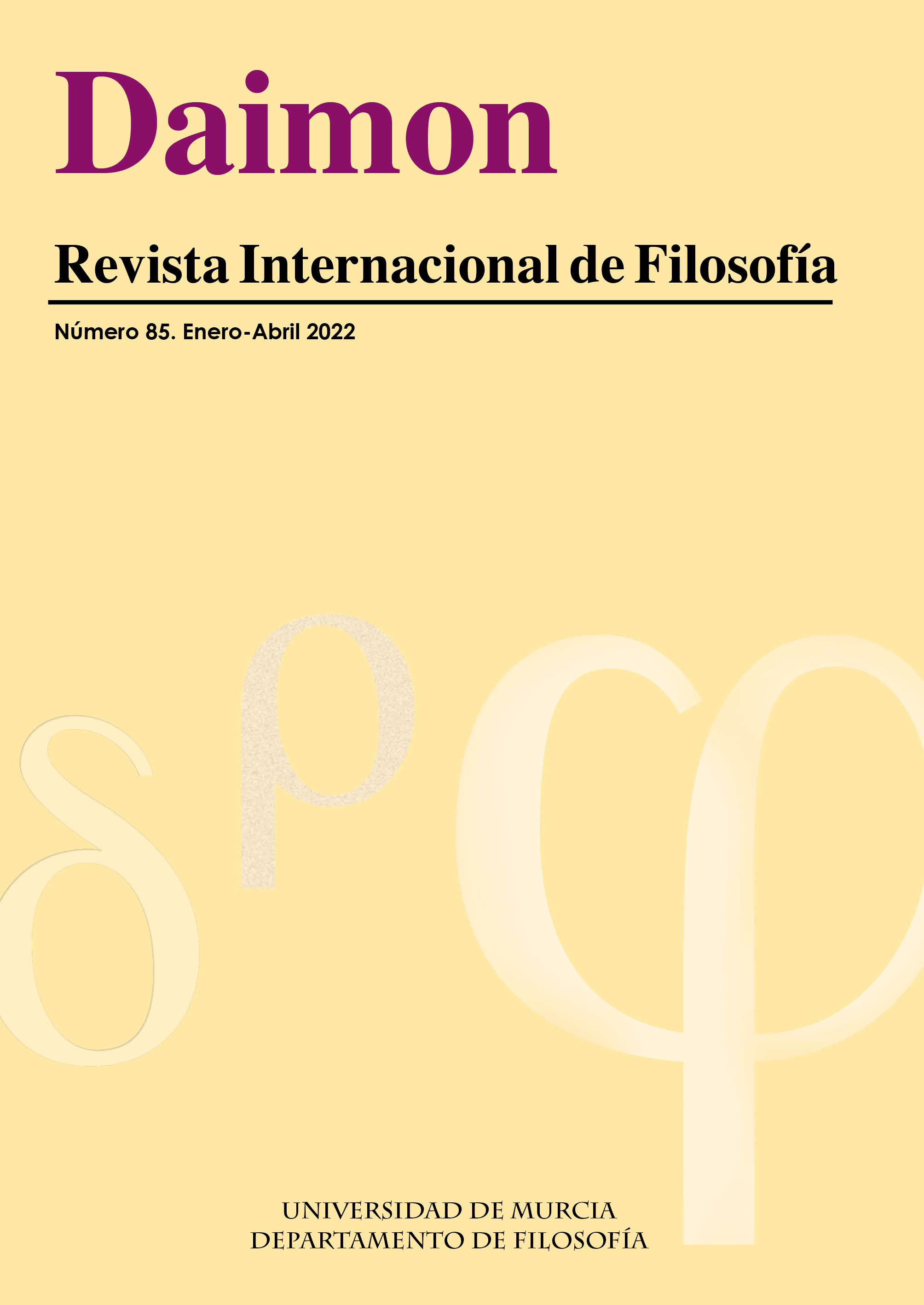Knowledge and plurality of points of view: a route between epistemology and philosophy of society
Abstract
The problem of induction in philosophy of science is considered one of the most relevant issue discussed among the scholars. I wish to make an attempt to show how the analysis of induction can contribute to the inquire about the questions concerning relativism, cultural pluralism and democracy.
Downloads
-
Abstract726
-
PDF 541
-
HTML 339
References
Aime, M. (2006), Gli specchi di Gulliver, Torino: Boringhieri.
Belardinelli, S. & Luhmann, N. (1993), «Discussione con Niklas Luhmann», in Belardinelli S. (1993), Una sociologia senza qualità. Milano: Angeli.
Arsalidou, M. & Pascual-Leone, J. (2016), «Constructivist Developmental Theory is Needed in Developmental Neuroscience», Science of Learning, 1, 16016.
Calvino, I. (1994), «Dall'opaco», in Id., «Altri ricordi, altre confessioni», in Romanzi e racconti, vol. III, a cura di C. Milanini, Milano: Mondadori, pp. 89-101.
Camos, V. & Barrouillet, P. (2018), Working Memory in Development, London & New York: Routledge.
Carpendale, J., Racine, T. (2011), «Intersubjectivity and Egocentrism: Insights from the Relational Perspectives of Piaget, Mead, and Wittgenstein», New Ideas in Psychology, 29, 3, pp. 346–54.
Di Prospero, A. (2012), «Teoria della razionalità, pluralismo democratico e ruolo degli intellettuali», in Alberto Pirni (a cura di), Verità del potere, potere della verità, Pisa: ETS.
Di Prospero, A. (2017), «Relatività del sapere ed epistemologia del pluralismo», in F. Sciacca (a cura di), Domande e metodi, Acireale-Roma: Bonanno, pp. 55-74.
Di Prospero, A. (2020), Linguaggio e ordine del mondo. Ricerche sul significato dell’induzione, Cosenza (Italy): Il Sileno.
Dodds, D. (2011), «Against Fallibilism», Australasian Journal of Philosoophy, 89, 4, pp. 665-685.
Durkheim, É. (1912), Les formes élémentaires de la vie religieuse, Paris: Alcan, trad. it. (1981) Forme elementari della vita religiosa, Milano: Comunità.
Elman, J., et al. (1996), Rethinking Innateness, Cambridge, MA: MIT Press.
Goodman, N. (1955), Fact, Fiction and Forecast, Cambridge: Mass.,: Harvard U.P., trad. it. (1985) Fatti, ipotesi, previsioni, Bari: Laterza.
Gregoratto, F. (2016), Il doppio volto della comunicazione: normatività, dominio e critica nell'opera di Jürgen Habermas, Milano-Udine: Mimesis.
Habermas, J. (1981), Theorie des kommunikativen Handelns, 2 voll., Frankfurt am Main: Suhrkamp, trad. it. (1986) Teoria dell'agire comunicativo, Bologna: Mulino.
Habermas, J. (1999), Wahreit und Rechtfertigung. Philosophische Aufsätze, Frankfurt-Main: Suhrkamp, trad. it. (2001) Verità e giustificazione, Roma-Bari: Laterza.
Hempel, C. G. (1943), «A Purely Syntactical Definition of Confirmation», Journal of Symbolic Logic, 8, pp.122-143.
Hesse, M. (1974), The Structure of Scientific Inference, Berkeley and Los Angeles: California U.P.
Luhmann, N. (1970), Soziologische Aufklärung, Kòln-Opladen: Westdeutscher Verlag, trad. it. (1983) Illuminismo sociologico, Milano: Saggiatore.
Luhmann, N. (1984), Sozial Systeme. Grundriβ einer allgemeinen Theorie, Frankfurt am Main: Suhrkamp, trad.it. (1990), Sistemi sociali, Bologna: Mulino.
Mandler, J. (1998), «Studies in Inductive Inference in Infancy», Cognitive Psychology, 37, pp. 60-96.
Meynell, H. (1982), «Infallible Fallibilism», New Blackfriars, 63, 745-746, pp. 745-746.
Molitor, A. & Hsu, H.-C. (2019), «Child Development Across Cultures», in Keith, K. D. (ed), Cross-Cultural Psychology, Hoboken, NJ: Wiley, pp. 153-189.
Mouffe, C. (1999), «Deliberative Democracy or Agonistic Pluralism», Social Research, 66, 3, pp. 745-758.
Musgrave, A. (2004), «How Popper (Might Have) Solve the Problem of Induction», Philosophy, 79, 307, pp. 19-31.
Parisi, D., Schlesinger, M. (2002), «Artifical Life and Piaget», Cognitive Development, 17, 3-4, pp. 1301-1321.
Pascual-Leone, J. (1970), «A Mathematical Model for the Transition Rule in Piaget's Developmental Stages», Acta Psychologica, 32, 4, pp. 301-345.
Pascual-Leone, J. & Johnson, J. (2017), «Organismic-Causal Models “From Within” Clarify Developmental Change and Stages», in Budwig, N., Turiel, E., Zelazo, P. D. (eds), New Perspectives on Human Development, Cambridge, UK: Cambridge U. P., pp. 67-87.
Pedrini, P. (2009), Prima persona. Epistemologia dell'autocoscienza, Pisa: ETS.
Piaget, J. (1937), La construction du réel chez l'enfant, Delachaux et Niestlé, Neuchâtel, trad. it. (1973) La costruzione del reale nel bambino, Firenze: Nuova Italia.
Piaget, J. (1964), Six études de psychologie, Paris: Gonthier.
Piaget, J. (1972), Problemes de psychologie génétique, Paris: Denoël-Gonthier, trad. it. (1973), Problemi di psicologia genetica, Torino: Loescher.
Popper, K. R. (1969), Conjectures and refutations, London: Routledge and Kegan Paul, trad. it. (1972) Congetture e confutazioni, Bologna: Mulino.
Rakison, D. et al. (2008), «Developing Object Concepts in Infancy: An Associative Learning perspective», Monographs of the Society for Research in Child Development, 73, 1, pp. 1-127.
Rescher, N. (1988), Rationality, New York: Oxford U. P.
Stevenson, L. (1999), «First Person Epistemology», Philosophy, 74, 4, pp. 475-497.
Strawson, P. F. (1959), Individuals, London: Methuen.
Thomas, M. & Karmiloff-Smith, A. (2003), «Connectionist Models of Development, Developmental Disorders and Individual Differences», in Sternberg, R. J., Lautrey, J. & Lubart, T. (eds), Models of Intelligence: International Perspectives, Washington, DC: American Psychological Association, pp. 133-150.
Westermann, G. et al. (2006), «Modeling Developmental Cognitive Neuroscience», Trends in Cognitive Sciences, 10, 5, pp. 227-232.
Las obras que se publican en esta revista están sujetas a los siguientes términos:
1. El Servicio de Publicaciones de la Universidad de Murcia (la editorial) conserva los derechos patrimoniales (copyright) de las obras publicadas, y favorece y permite la reutilización de las mismas bajo la licencia de uso indicada en el punto 2.
2. Las obras se publican en la edición electrónica de la revista bajo una licencia Creative Commons Reconocimiento-NoComercial-SinObraDerivada 3.0 España (texto legal). Se pueden copiar, usar, difundir, transmitir y exponer públicamente, siempre que: i) se cite la autoría y la fuente original de su publicación (revista, editorial y URL de la obra); ii) no se usen para fines comerciales; iii) si remezcla, transforma o crea a partir del material, no podrá distribuir el material modificado.
3. Condiciones de auto-archivo. Se permite y se anima a los autores a difundir electrónicamente las versiones pre-print (versión antes de ser evaluada) y/o post-print (versión evaluada y aceptada para su publicación) de sus obras antes de su publicación, ya que favorece su circulación y difusión más temprana y con ello un posible aumento en su citación y alcance entre la comunidad académica. Color RoMEO: verde.











